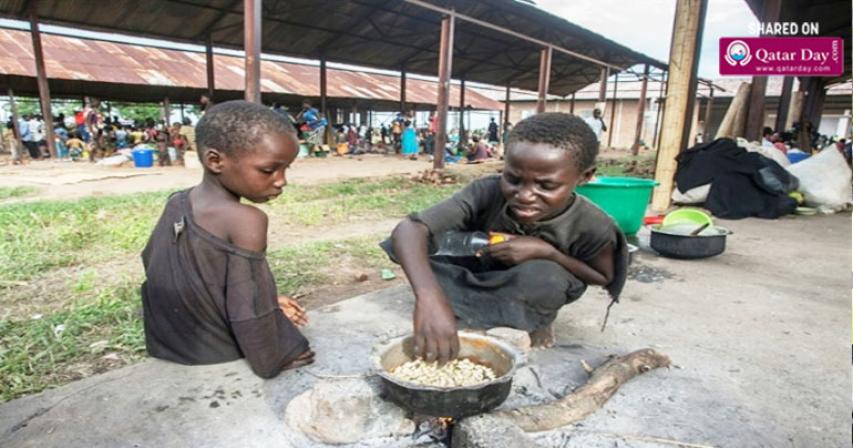’Cannot go back’: Malawi floods leave thousands homeless
- 5 years ago

"We simply rest on the floor during the tents," said 28-year-old mother-of-five Mary Amidu who like a huge number of different Malawians fled her flood-attacked home.
"It's a camp, so the circumstance is critical. You simply locate a little space in the tent with your family and make it home."
Her town is only 10 kilometers (six miles) away on the Mozambique fringe, adjacent to the west bank of the Shire waterway which has blasted its banks following long stretches of exuberant downpour.
Crosswise over Malawi, somewhere around 56 individuals have been murdered after glimmer floods while the administration assesses just about 83,000 individuals have been dislodged.
The waters a week ago attacked her home so quickly that the youthful widow needed to scramble to get her family to security.
"The floods came all around rapidly and we had no opportunity to safeguard anything, the greater part of my property ran with the floods," she said. "What was critical was to spare lives."
They are presently at the crisis camp, situated in Bangula, southern Malawi - near the fringe with Mozambique which was hit by tropical twister Idai late Thursday, removing the beach front city of Berea.
"In spite of the fact that we have sustenance, we have no cooking utensils to set up the nourishment on the grounds that everything was lost," said Amidu who said she fears a long remain at the camp as waters die down.
"We can't return soon in light of the fact that the water has not subsided thus the house has been obliterated. So we will stick around the camp until the circumstance standardizes. We have no other decision."
Pilirani Andulu, strolled 15 kms to the camp after her home crumbled and has been compelled to rest in the open with her two-year-old young lady in light of the fact that the tents are full.
An absence of covers and mosquito nets implies her kid is presented to mosquitoes, jungle fever and cold.
Help official Humphrey Magalasi has been engaging to guarantee the 21 camps opened to deal with the emergency can keep up.
"We have colossal holes as far as assets, for example, sustenance and non-nourishment things," he told AFP. "What we frantically need right presently is nourishment, tents, drug and mosquito nets."
Upwards of 1,700 families had settled at the Bangula camp as of Thursday.
Up until this point, the Department of Disaster Management Affairs has gotten only 5,000 packs of rice, provided by China.
At Bangula landing strip, Magalasi has likewise been dispatching sustenance and crisis supplies to regions cut off by flooding including Makhanga, 65 kms from Bangula.
"We are transporting supplies to Makhanga where around 2,000 families have been influenced," he said.
"Because of the flooding, the territory is just available by vessel or via air. We plan to carrier 600 packs of rice and other non-nourishment things to Makhanga."
No less than 56 individuals have kicked the bucket in flood-hit territories as of Wednesday, as indicated by the administration, while 577 had been harmed and three are absent.
"The majority of the uprooted families are living in camps. Up until this point, an aggregate of 187 camps have been built up in the influenced locale," said the legislature in an announcement.
"Appraisals to build up the degree of harm in all the 14 influenced locale (of Malawi's 28) are as yet in progress."
The floods additionally made overwhelming harm property, including streets and yields which constrained President Peter Mutharika to proclaim a condition of catastrophe.
An AFP reporter saw broad harm to fields of corn, otherwise called maize, around Bangula. The demolition could possibly unleash ruin with the reap due in April and May.
The nation's Department of Climate Change and Meteorological Services has cautioned Malawians to anticipate further deluges.
Comments